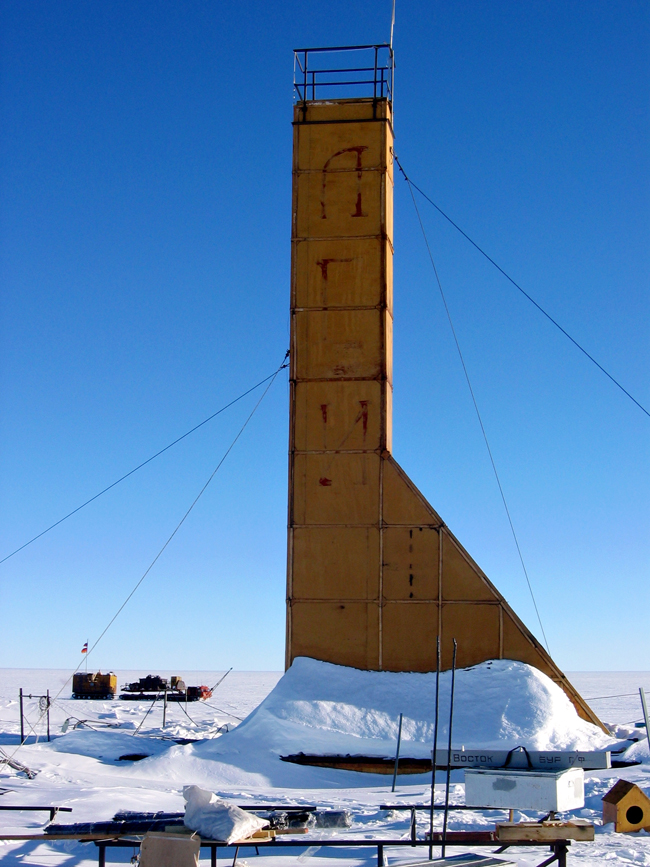MOSCOW — After more than two decades of drilling in Antarctica, Russian scientists have reached a gigantic freshwater lake hidden under miles of ice for some 20 million years — a pristine body of water that may hold life from the distant past and clues to the search for life on other planets.
Finally touching the surface of Lake Vostok, the largest of nearly 400 subglacial lakes in Antarctica, is a major discovery avidly anticipated by scientists around the world.
Valery Lukin, the head of Russia’s Arctic and Antarctic Research Institute who oversaw the mission and announced its success, likened the endeavor to the epic race to the moon won by American scientists over the Soviets in 1969.
“I think it’s fair to compare this project to flying to the moon,” he said Wednesday.
Scientists hope the lake may allow a glimpse into microbial life forms that existed before the Ice Age and are not visible to the naked eye. Scientists believe that microbial life may exist in the dark depths of the lake despite its high pressure and constant cold — conditions similar to those expected to be found under the ice crust on Mars, Jupiter’s moon Europa and Saturn’s moon Enceladus.
“In the simplest sense, it can transform the way we think about life,” NASA’s chief scientist Waleed Abdalati said.
American and British teams are drilling to reach their own subglacial Antarctic lakes, but Columbia University glaciologist Robin Bell said those lakes are smaller and younger than Vostok, which is the big scientific prize.
“It’s like exploring another planet, except this one is ours,” she said.
Lake Vostok is 160 miles long and 30 miles across at its widest point, similar in area to Lake Ontario. It’s kept from freezing into a solid block by the mammoth crust of ice across it that acts like a blanket, keeping in heat generated by geothermal energy underneath.
The technological challenges of drilling through the ice crust in the world’s coldest environment have made the project unique.
Temperatures on the Vostok Station on the surface above have registered the coldest ever recorded on Earth, reaching minus 89 degrees Celsius, and conditions were made even tougher by its high elevation, more than 11,000 feet above sea level, resulting in thin oxygen.













